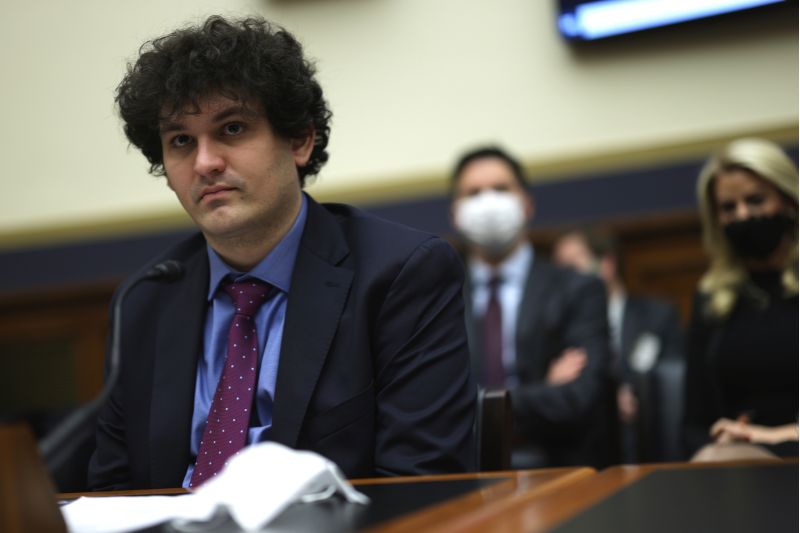Brunch with Shaquille O’Neal, dinner with the Kardashians, a chat with Hillary Clinton and a meeting with the CEO of Goldman Sachs. That was an average week in the life of Sam Bankman-Fried (SBF). In early 2022, he was the world’s youngest billionaire and was thought by many a decent shot at becoming the world’s first trillionaire.

Less than nine months later, two of his companies were bankrupt and he was indicted with criminal charges for siphoning off and misusing around $8 billion of his customers’ money.
His New York trial over the past three weeks was a true media circus. Overflow rooms were packed. Public queuing began at 4am each morning. Michael Lewis’ recently released biography of SBF (Going Infinite: The rise and fall of a new tycoon) was being read in the galleries and by courthouse security guards. Lewis – the bestselling author of Moneyball and The Big Short – even dropped in to watch some of the action himself.
This month, he was found guilty and now faces a prison sentence of up to 110 years.
SBF made his fortune riding the Covid-driven wave of interest in crypto-currency. Crypto is a digital currency that is produced through complex computer calculations and then traded on a shared database called a blockchain. It was promised by its evangelists as a way to get rich quick and as an alternative to fiat currency – the boring government-regulated money we’re used to using.
Very few prospectors struck it rich by finding gold during California’s 19th-century gold rush, but those who sold them shovels profited handsomely. SBF read the play. In May 2019 he launched his own crypto exchange – FTX – and became the world’s most reliable crypto ‘shovel salesman’. He was right. You don’t have to bet on horses if you own the racetrack. His net worth peaked at $26 billion.
Before long, SBF began siphoning off his customers’ money from FTX to his other company, Alameda Research. Alameda was a regular crypto trading fund, buying and selling crypto to make profit. It wasn’t enough to own the racetrack. SBF wanted to bet on the horses too.
'The rise and fall of this new tycoon gives us much to reflect on. Potential misused. Capacity misdirected. Greed laying waste to victims. His story was once an advertisement for uninhibited brilliance. It became a cautionary tale of morally vacuous ambition.'
According to his biographer, he was simply trying to make money so he could help people. As a young university graduate, he had aligned himself with a movement known as Effective Altruism (EA) – a global network that seeks to do good based on data-driven research and mathematical modelling.
Alarm bells were raised about his ethical standards as early as 2018, sparking infighting in the EA community. EA was forced to choose between his questionable ethics and his money. He was their most prominent donor. They stopped asking questions. Moral cracks were appearing, but the numbers kept adding up. SBF reportedly gave around $160 million to EA causes in 2022. It’s now clear this was probably not his money to donate.
Through it all, Bankman-Fried maintained his fidelity to optimisation on his own terms. From girlfriends to investments, he treated every decision as a probability calculation. When asked about ethics, he remarked that people should be treated according to the probability distribution of their future behaviour. People aren’t good or bad, we should just treat them according to how useful they’re likely to be.
For him, the world is neither moral nor immoral. It’s amoral. The end always justifies the means provided the numbers add up. As one reporter put it, SBF is not a feeler, he's a calculator. Embezzling money was the right thing to do to optimise his wealth and therefore, his capacity to help people.
His reasoning is jarring. Or perhaps it’s just jarringly honest about the fabric of modernity. Sociologist George Ritzer contended that our world is built on optimising for efficiency, predictability, calculability and control to improve everyone’s quality of life. In contrast, philosopher Ayn Rand said that the only purpose of morality is an individual’s happiness.
SBF’s story reveals that in an amoral world, the difference between selfishness and altruism becomes invisible. He could just as easily have been living by Rand as by Ritzer. When we write our own ethics, we tend to turn inwards. Self-interest consumes both the altruist and the individualist. And the consequences are damaging. People are hurt. Human dignity is eviscerated. We are reduced to walking talking probability calculations, only worthy of being treated according to our usefulness.
Tellingly, three of SBF’s former employees – no doubt subjects of many of his calculations – testified against him in court. They’d probably calculated that cutting a deal with prosecutors optimised for their own futures.
The rise and fall of this new tycoon gives us much to reflect on. Potential misused. Capacity misdirected. Greed laying waste to victims. His story was once an advertisement for uninhibited brilliance. It became a cautionary tale of morally vacuous ambition. It will make a good movie. But it also gives rise to deeper questions for all of us. If the ends justify the means, then who justifies the ends? Surely not simply the richest guy who parties with the most celebrities.
Max Jeganathan served as a political and social policy adviser in the Rudd and Gillard Labor governments. He is an Associate of the Centre for Public Christianity and is undertaking a PhD on the ethics of human dignity.
Main image: Sam Bankman-Fried testifies during a hearing before the House Financial Services Committee in Washington, DC. (Alex Wong / Getty Images)